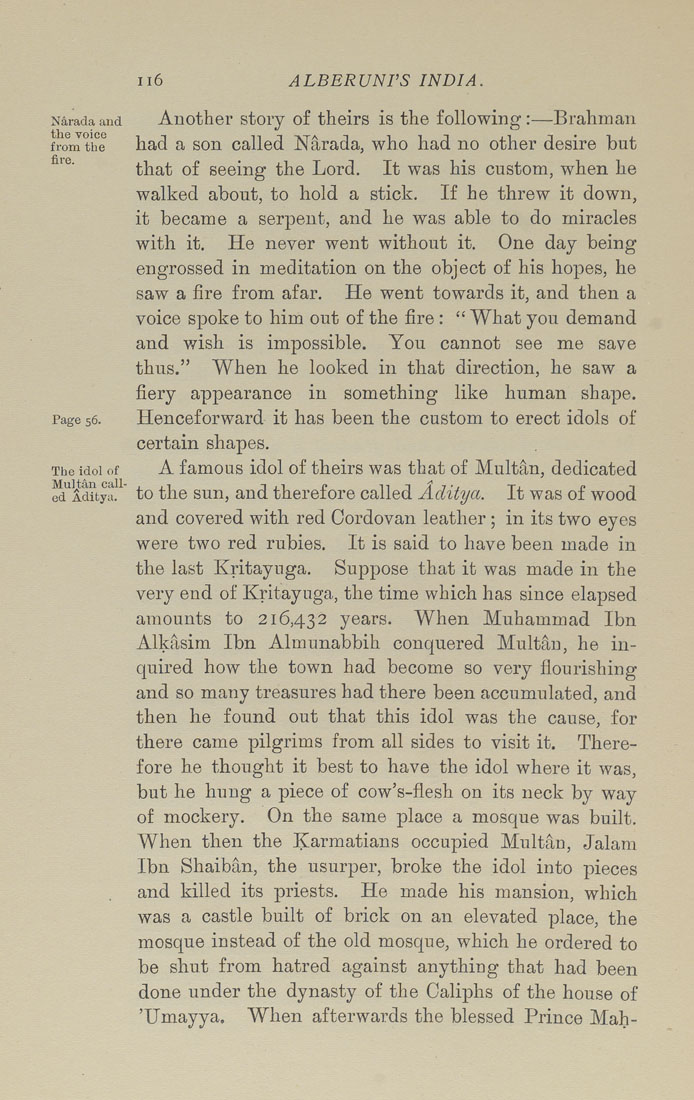Bīrūnī, Muḥammad ibn Aḥmad, Alberuni's India (v. 1)
(London : Kegan Paul, Trench, Trübner & Co., 1910.)
|
||
|
|
|
|
| Page 116 |

ii6 ALBERUNPS INDIA. Narada and the voice from the fire. Page 56. The idol of Mu]J;an call¬ ed Aditya. Another story of theirs is the following:—Brahman had a son called Narada, who had no other desire but that of seeing the Lord. It was his custom, when he walked about, to hold a stick. If he threw it down, it became a serpent, and he was able to do miracles with it. He never went without it. One day being engrossed in meditation on the object of his hopes, he saw a fire from afar. He went towards it, and then a voice spoke to him out of the fire : " What you demand and wish is impossible. You cannot see me save thus." When he looked in that direction, he saw a fiery appearance in something like human shape. Henceforward it has been the custom to erect idols of certain shapes, A famous idol of theirs was that of Multan, dedicated to the sun, and therefore called Aditya. It was of wood and covered with red Cordovan leather; in its two eyes were two red rubies. It is said to have been made in the last Kritayuga. Suppose that it was made in the very end of Kritayuga, the time which has since elapsed amounts to 216,432 years. When Muhammad Ibn Alkasim Ibn Alinunabbih conquered Multan, he in¬ quired how the town had become so very flourishing and so many treasures had there been accumulated, and then he found out that this idol was the cause, for there came pilgrims from all sides to visit it. There¬ fore he thought it best to have the idol where it was, but he hung a piece of cow's-flesh on its neck by way of mockery. On the same place a mosque was built. When then the Karmatians occupied Multan, Jalam Ibn Shaiban, the usurper, broke the idol into pieces and killed its priests. He made his mansion, which was a castle built of brick on an elevated place, the mosque instead of the old mosque, which he ordered to be shut from hatred against anything that had been done under the dynasty of the Caliphs of the house of 'Umayya. When afterwards the blessed Prince Mah- |
| Page 116 |







